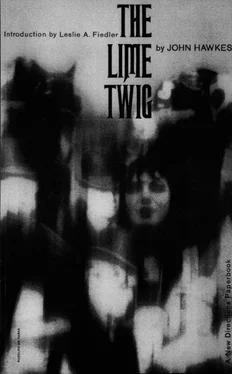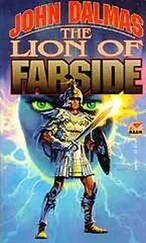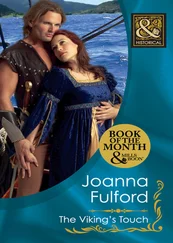Far away, back under clock and pennants, a terrible cheering went up. But it was the woman’s clear statement that made him sick. He pulled his hand away from the radiator cap, set his foot down from the bumper, and tried to get close to her before the thirteen horses of the field should pass.
“Charlie, you’re going to owe me a tonic,” the woman said.
He heard the sound of hoofs and managed to stumble into the shadow of the pair by the rail. He nodded to the woman and she smiled, spoke again to her husband—“You might as well tear up your ticket!”—and he felt the coming breeze, watched a long hair on his sleeve. The mustached man had his back to the race. The girl was trying to see over his shoulder but he prevented her. And then the hair was saved between his fingers and he looked up, began to choke.
The blinders, the tongue tied down, the silver neck sawing in stride; the riders coming knee to knee with tangle of sticks and the noise; dust, the dangerous dust, rising high as a tall tree, and pebbles flying out like shots. He put an arm across his face, whispered Margaret, Margaret , and in the vacuum, the sudden silence, heard no hoofs, no roar, but only the thwacking of the crops and the clear voice of Jimmy Needles: “Make way for the Prince of Denmark … out of my path, St James. …” He knew he must put a stop to it.
“You can’t do that! Grab him, for God’s sake, Charlie!”
But he was over the rail then and into the dust at last. It was a long way to go — directly across the track in the open sun — and he stumbled, tried to hold the hat. He heard his heart — far away a child seemed to be beating it down the center of a street in the End — heard the sound of air being sucked beneath the spot where the constable had landed two heavy blows, and his feet were falling upon the same loose earth so recently struck by iron.
He hadn’t the strength to climb the second fence, instead went between the bars, going down, seeing his own dead shoe for a moment, feeling his hand slipping off the whitewash. Then he was on the green, splashed through an artificial pond, ran headlong into roses and hedges that came up to his shins. It was a park, a lovely picture of a park with a mad crowd down one edge and thirteen horses whirling round. His shoe came down on the blade of a shears some gardener had overlooked. He nearly fell. He would have to be fast, very fast, to stop them now.
He heard his shoes snapping off the thorns and trampling the grass, and yet he seemed only to be drifting, floating across the green. But it was a good run, an uphill run. The wind was catching his saliva when suddenly he veered round the man rising up between the rose bushes with a pistol. He saw the gun-hand, the silencer on the barrel like a medicine bottle, the quickness of Sparrow’s waist-high aim, and then felt both shots approaching, overtaking him, going wild. And he reached the third and final fence, crawled through.
The green, the suspended time was gone. The child pounded on his heart with anonymous rhythm and he found that after all he had been fast enough. There were several seconds in which to take the center of the track, to position himself according to the white rails on his right and left, to find the approaching ball of dust ahead and start slowly ahead to encounter it. Someone fired at him from behind a tree and he began to trot, shoes landing softly, irregularly on the dirt. The tower above the stands was a little Swiss hut in the sky; a fence post was painted black; he heard a siren and saw a dove bursting with air on a bough. I could lean against the post, he thought, I might just take a breath. But the horses came round the turn then and once more his stumbling trot was giving way to a run. And he had the view that a photographer might have except that there was no camera, no truck’s tailgate to stand upon. Only the virgin man-made stretch of track and at one end the horses bunching in fateful heat and at the other end himself — small, yet beyond elimination, whose single presence purported a toppling of the day, a violation of that scene at Aldington, wreckage to horses and little crouching men.
The crowd began to scream.
He was running in final stride, the greatest spread of legs, redness coming across the eyes, the pace so fast that it ceases to be motion, but at its peak becomes the long downhill deathless gliding of a dream until the arms are out, the head thrown back, and the runner is falling as he was falling and waving his arm at Rock Castle’s on-rushing silver shape, at Rock Castle who was about to run him down and fall.
“… the blighter! Look at the little blighter go!” Quietly, holding the girl’s arm in the midst of the crowd: “Let me have the binoculars, Sybilline.” Larry removed his green glasses, blinked once, and, still holding her arm so that the brass knuckles were brilliant and sunken into her flesh, looked through binoculars until the cloud went up.
“He’s crossed us,” whispered Sybilline, “he’s crossed us, hasn’t he?”
Out beyond the oval and past the broken threads of the rail the cloud stopped short and rose, spending itself dark as an explosion’s smoke. Then Larry was done and Sybilline took a look for herself: dust abruptly curling, settling down, horses lying flat with reins in the air, small riders limping among the animals or in circles or off toward the fence. And the silver horse was on its side with Banks and Jimmy Needles underneath. And three dirty-white Humber ambulances were racing up the track.
“Take me out to him … take me out to him, please.”
But in the confusion — they passed the lined white faces of the man with tickets, the woman’s husband Charlie, the older woman with chocolates smeared on her hands again — Larry and Syb and Little Dora hustled her behind the stands and out to the enormous car waiting in the line of cars, bundled her under the rags and quilting on the car floor. Thick was already sweating behind the wheel.
It was a heavy rain, the sort of rain that falls in prison yards and beats a little firewood smoke back down garret chimneys, that leaks across floors, into forgotten prams, into the slaughterhouse and pots on the stove. It fell now on the roof of the stables in the Highland Green area and caused the trough beneath the pump to overflow, tore cobwebs off small panes of glass, filled wood and stone with the sound of forced rainwater. Timbers were already turning black, and the whistling of far-off factory hooters was lost in the rain.
Two chauffeur-driven automobiles approached with water spilling back from the wipers and cleaving down the hoods. They were black automobiles, though the rain gave them a deep-blue shine. They were high-bodied, carried special insignia, the radiator caps were nickel-plated. Grille to bumper they came into the cobbled yard and parked near the pump. The doors and windows remained shut, the engines continued to run; for half an hour the cars stood shedding the rain and no one alighted. Finally, when the rain failed to slacken, two men wearing waterproofs and bowlers got down — small men, Violet Lane detectives.
Wiping their faces with damp handkerchiefs, they went together down the wide walk between the rows of stalls, and the black cars followed at a little distance, low gears running smoothly as music boxes. The odor of rain-washed bridges drifted up to mix with dead smells of the stables: spread out from here were the gravel heaps, the leaking slate roofs and single rooms and roots and, farther on, the jewels, the places of execution, the familiar castle walls. All wet, all pitched in gloom. The two men knew this rain. It meant tea with lemon, housemaids out of mood, drops of water on spike fences and lickings for their boys. It meant women going it upright beneath the bridges and tall blue sergeants caped and miserable, helpless on all the corners. And it meant a dampness in the trousers that no coal fire could dry.
Читать дальше












